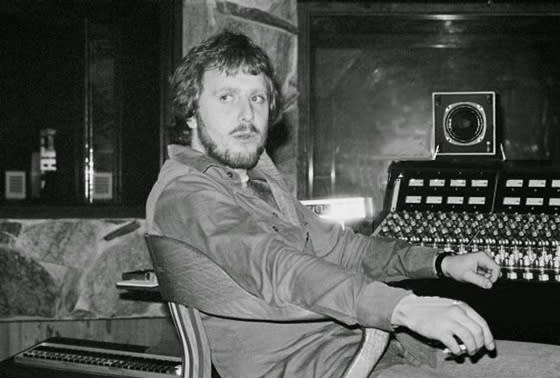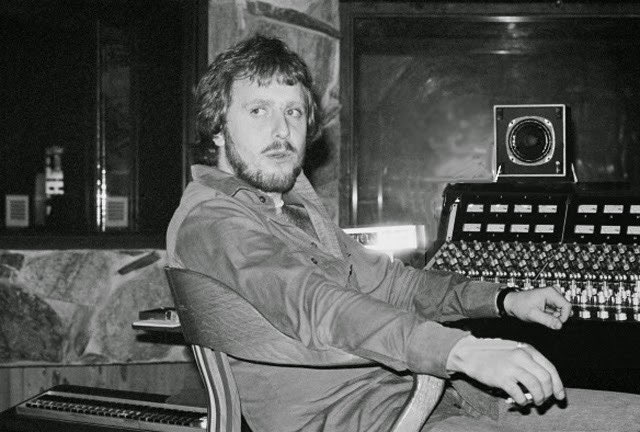"It is with a very heavy heart I've just had verified my very dear friend & producer Martin Birch has passed away…" Coverdale tweeted. "Martin was a huge part of my life…helping me from the first time we met through until Slide It In…Mt thoughts & prayers to his family, friends & fans…"
Born in Woking, Surrey, in 1948, Birch began his industry career as an engineer, earning early credits on albums by Jeff Beck and Fleetwood Mac. It was with the latter group that he formed one of his first longstanding working relationships, earning himself credits on early Mac albums Then Play On, Kiln House, Bare Trees, Penguin and Mystery to Me.
Throughout the '70s, Birch took turns behind the boards as an engineer and producer for Deep Purple, Wishbone Ash, Deep Purple and Rainbow. His relationships with the latter two bands led to Black Sabbath enlisting him to produce Dio-era albums Heaven & Hell and Mob Rules.
"I certainly think that you can only make the most out of a band if you know it really well, very much in depth," Birch would tell France's Best magazine in 1983. "Occasional producers who make an album with a band, then move on to another, are bound to do something pretty shallow. The results are always brilliant, excellent at the time, but you realize later that the true colors of the band don't come out and the album loses quickly its prestige."
Perhaps Birch's strongest relationship with a band was the one he shared with Iron Maiden, producing nine consecutive albums for the metal outfit between 1981 and 1992. Following 1981's Killers, Birch produced Maiden's seminal 1982 follow-up The Number of the Beast — the band's first with Bruce Dickinson handling vocals.
"When Bruce joined, it opened up the possibilities for the new album tremendously," Birch recalled to Classic Rock in 2016. "I simply didn't think Paul [Di'Anno] was capable of handling vocals on some of the quite complicated directions I knew [bassist and songwriter] Steve [Harris] wanted to explore. I remember saying to them when it was finished, 'This is gonna be a big, big album. This is gonna transform your career.' It just had all the magical ingredients: feel, ideas, energy, execution. And I think the response I got was, 'Oh, really?'"
Birch would retire from the industry after producing Iron Maiden's 1992 album Fear of the Dark. Find tributes to the late producer and engineer below.
It is with a very heavy heart I’ve just had verified my very dear friend & producer Martin Birch has passed away...Martin was a huge part of my life...helping me from the first time we met through until Slide It In...Mt thoughts & prayers to his family, friends & fans...💔💔
Really sad to hear of the passing of Martin Birch. Brilliant producer. Had the pleasure of working with him on the Black Sabbath albums #HeavenandHell and #MobRules. Condolences to Vera and family. #RIPMartin
RIP Martin Birch. Legendary producer of countless albums by Black Sabbath, Rainbow, Deep Purple, Whitesnake, Iron Maiden & more. "My thoughts & prayers go out to his wife Vera & his daughter Haley. He was a genius producer & a very dear friend of Ronnie’s. May he RIP"- Wendy Dio
So shocked to hear the sad news of Martin Birch’s passing. Martin was a lovely guy and a great producer - he produced Heaven and Hell and The Mob Rules for Sabbath. He will be deeply missed and my thoughts go out to his family. R.I.P. Tony
A sad day for the Family of Rock. Martin Birch - the legendary Producer of Deep Purple and many other Great Artists - passed away on Sunday. Our hearts and prayers go out to his Family and Friends. RIP Martin Birch - Scorpions














